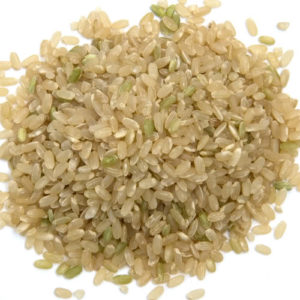
Losing weight isn’t as difficult as it seems. Keeping it off is the hard part. Statistics show that over 97 percent of dieters gain the weight back within three years. Despite the latest advancements in medical research, obesity is on the rise. Dieting itself can also be associated with weight gain.
The only way to keep the pounds off is to change your eating habits for life.
For long-term weight loss, follow these 6 simple rules:
1) Increase Your Protein Intake
Whether you want to shed fat or maintain your weight, eat plenty of protein. Compared to fats and carbs, this nutrient takes more energy to digest. As a result, it increases your metabolic rate and promotes satiety.
Every meal should include lean meat, fish, low fat cheese, eggs, or other protein source. Depending on how active you are, get at least 0.8 grams of protein per pound of body weight.
2) Focus on Meal Timing
The key to long-term weight loss is to ensure you get the right amount of calories at the right time. When you eat is just as important as what you eat. Insulin sensitivity is highest earlier in the day and lowest at night.
For this reason, you should eat carbs when you’re the most active, which is during the day and around your workouts. In the evening, limit your carb intake and load up on protein and healthy fats.
3) Choose Your Carbs Wisely
Not all carbs are created equal. For long-term weight loss, eat healthy carbs, such as those in oatmeal, beans, whole pasta, brown rice, wild rice, peas, and leafy greens.
Avoid any foods containing refined sugar, high fructose corn syrup, agave syrup, molasses, and dextrose. Your daily carbs should come from low sugar fruits, vegetables, and whole grains.
4) Eat Enough Fiber
Fill your plate with foods that are high in volume, not calories. This category includes high fiber foods, such as spinach, kale, cabbage, broccoli, and lettuce. Make leafy green vegetables your friend and enjoy them in large amounts.
Fiber keeps you full, slows down sugar absorption, and promotes good digestion. It also lowers your risk of colon cancer and improves insulin sensitivity.
5) Make Exercise a Habit
Dieting alone is not enough for maintaining your weight. Over time, your body learns to survive on fewer calories, which leads to a weight loss plateau. Regular exercise helps build and preserve muscle, burns fat, and keeps your metabolism up.
The more muscle you have, the more calories you burn throughout the day. On top of that, physical activity lifts your mood and energizes your body while lowering your risk of diseases. For long-term weight loss, exercise is a must.
6) Focus on Strength Training
Your workout routine should consist of strength exercises and high intensity cardio training. Lifting weights is the key to long-term weight loss and lean muscle growth. Compound exercises, such as lunges, deadlifts, squats, and pull-ups, rev up your metabolism and cause your body to burn fat long after finishing your workout.
They also make you stronger overall, boost athletic performance, and increase bone density. For best results, lift weights at least three times a week.










Be the first to comment